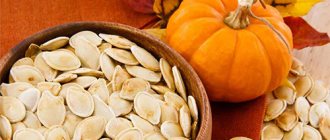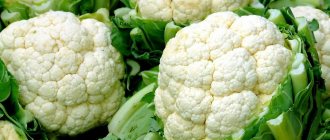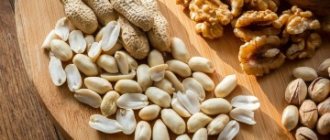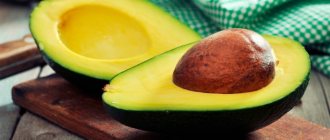Change in the taste of breast milk
The taste of milk treats, so necessary for every child after birth, can be influenced by various factors:
- disruptions of hormonal parameters;
- mood swings of a nursing woman;
- excessive physical activity;
- features of the diet.
Over the course of a day, the taste characteristics of breast milk change slightly, and the baby gradually gets used to this fact. Therefore, mommy may well eat garlic during breastfeeding only in small quantities, for example, 1 clove.
About the composition
The spice contains:
- nitrogenous compounds;
- allicin;
- antioxidants;
- ascorbic acid;
- protein;
- bioflavonoids;
- B vitamins;
- potassium;
- calcium;
- cellulose;
- sodium;
- sulfuric acid;
- sulfur compounds;
- phytoncides;
- phytostreins;
- essential oils.
If a woman consumes garlic in accordance with the norms and recommendations, then the chance that it can cause harm is very small. However, it should be borne in mind that the newborn should not be allowed to breathe garlic, since the essential oils contained in it will burn the mucous membrane.
General recommendations
Full breastfeeding is providing the baby’s body with all the substances, minerals, and microelements it needs. Therefore, mommy’s diet must contain not only fruits, but also various vegetables, including onions and garlic.
They can be added to soups and salads. You just need to carry out heat treatment and not overuse it in quantity. For the first time, take only a small slice or clove. Look at the baby’s reaction: if there is increased gas production, strange rashes, or the child’s sleep suffers, it is better to avoid such ingredients.
In general, the presence of green onions in the diet does not affect the taste of breast milk. Some children even begin to eat better if their mothers allow themselves some deviations from the daily menu.
Does the age of the child matter?
The age of the newborn matters. Experts do not recommend consuming garlic in any form if the newborn is under 3 months old, since the baby's digestive system is still too weak.
At the 4th month of life, the baby’s digestion improves, and you can begin to gradually introduce garlic into the mother’s diet. In this case, it is necessary to carefully monitor the baby’s reactions, and if signs of an allergy appear, you should immediately introduce this ingredient from the diet for at least a month.
The benefits of garlic and onions
It is worth noting that the calorie content of these vegetables is minimal, so there is no need to worry that they will contribute to weight gain: there are no carbohydrates or fats in garlic and onions.
Among the beneficial properties of vegetables, the following should be noted:
- They help fight “bad” cholesterol.
- Reduce the risk of the formation of malignant neoplasms in the structures of the gastrointestinal tract.
- Adjust pressure parameters.
- Can increase the protective forces of the female body to fight viral infections.
Many mothers are afraid to use garlic while breastfeeding, citing an unpleasant odor. You can chew a little parsley after it, this will help freshen your breath.
In general, garlic and onions have a beneficial effect on the body of young mothers. If, however, doubts arise, it is better to consult a specialist.
Impact on the body of mother and child
Experts highlight many beneficial properties of onions and garlic for the body of a young mother, so it is recommended to include these products in the menu fresh or as an additive to dishes:
- are natural antibiotics due to their bactericidal and antiseptic properties. They perfectly help fight viruses and bacteria, so doctors advise eating onions and garlic to prevent ARVI and influenza diseases;
- stimulate the functioning of the body's immune forces. Thanks to the content of vitamin C, the body's defenses are strengthened: the immune system copes faster with pathogenic microorganisms;
- reduce the growth of fungal flora, which is especially important during lactation, when the body is weakened and fungi multiply faster;
- garlic reduces the likelihood of the formation of malignant neoplasms of the gastrointestinal tract;
Scientists conducted studies in which people regularly consumed garlic. Based on the results, they came to the conclusion that the likelihood of cancer of the pancreas and stomach decreases.
- in moderate quantities helps to normalize the functioning of the digestive system.
The effect of foods on breast milk and the baby's body
In most cases, nursing mothers are afraid to include garlic and onions in their diet. It is recommended that before introducing a new product into the menu, consult a doctor who will advise you on how to properly consume these healthy vegetables. Before adding onions or garlic to dishes, you need to know what effect the substances included in the composition can have on the quality and taste of breast milk, as well as on the baby’s body:
- Eating onions or garlic affects the smell of mother's milk. Indeed, a specific aroma may appear. However, experts explain: if you eat a small amount of these foods per day, the baby may not notice it and will continue to breastfeed in the same way as before. However, some mothers insist that the child refused to attach to the nipple precisely after the introduction of these products into the woman’s diet. Therefore, doctors concluded: everything is individual and depends on the sensitivity of the baby;
A study was conducted to find out whether every baby really refuses to breastfeed if the mother ate onions or garlic. The results amazed the experts: not a single baby turned away from the nipple; on the contrary, their appetite improved.
- the taste of the nutrient fluid changes. The baby's body is very sensitive to the taste of mother's milk, because this is its main food, so it should be not only healthy, but also tasty. Breast milk is very sweet and babies eat it with such pleasure. However, garlic or onions may have a slight effect on the taste of the valuable liquid. Experts explain: if you eat a small amount of these products a day, your baby will not feel the difference;
- may cause digestive problems in a child. It also depends on each baby's individual response. For example, if a nursing mother ate garlic or onions and developed flatulence, then the same reaction is possible in the baby. Increased gas formation causes colic - painful sensations in the baby’s abdomen;
- The baby may be allergic to these products. Garlic and onions are not highly allergenic vegetables. But the risk of developing allergic reactions in the baby is still present. The fact is that a child’s unformed enzyme system can react this way to many foods. If this happens, the mother should stop adding onions and garlic to dishes and try again in a month or two. As the child grows older, he or she may react normally to foods with such additives. However, one should not exclude individual intolerance in the baby: in this case, it is better for a nursing mother to refuse to eat these products until breastfeeding is completed.
Experts recommend not eating raw onions and garlic. After heat treatment of products, the risk of allergies decreases.
If a child has digestive problems or allergic reactions after the mother included garlic or onions in the menu, these products should be excluded from the woman’s diet
No amount will do any harm
So, the pediatrician approved the presence of a vegetable such as onions in the diet during breastfeeding. Women naturally have a question about how much it is permissible to consume so as not to cause a deterioration in the quality of milk and the health of the baby.
First of all, it is recommended to find out whether the baby has an allergic reaction to onions and garlic. For this purpose, nursing women need to eat no more than 1/3 of a clove, preferably in the morning, and carefully monitor the well-being of the newborn.
If there are no changes in the health of the baby, a gradual increase in the volume of the vegetable is permissible: up to a whole clove or a small onion per day. Vegetables can be included in the diet 1-2 times a week.
Similar steps to adjust nutrition can be taken a month or two after the baby is born, since in earlier periods his digestive organs are still weakened and may not be able to cope with the absorption of garlic.
Rules of use
- The nasty smell can be eliminated if you eat a parsley leaf after eating garlic. In addition, such greens have a positive effect on lactation.
- You need to add garlic from one third of the clove. If tolerance is normal, increase this portion to the daily requirement of one clove. If the reaction is bad, stop introducing this product and postpone it for a couple of months.
- You can eat garlic no more than 2 times a week.
- It is better to use garlic as a seasoning for dishes, and not in its pure form.
- Try to use garlic from your garden rather than store-bought.
- It is forbidden to consume garlic before the baby is 3 months old. And it’s better after six months of age.
As you can see, garlic has a positive effect on the body of both mother and baby. But we must not forget that we recommend introducing this vegetable only after the child reaches three months of age, but it is better to wait until the baby is six months old. It is important to know what contraindications exist when consuming garlic. Don't worry that your baby will refuse garlic-flavored breast milk. If you consume this vegetable in small quantities, the taste of the milk will not change much. And, if the mother ate this product during pregnancy, then the baby is already adapted to its aroma.
Contraindications
Before including these products in your diet, you should consider a number of relative and absolute contraindications:
- The first include increased irritability and capriciousness of the baby when smelling or tasting garlic or onions;
- the occurrence of allergic conditions: observed in rare cases, but still possible;
- if, due to circumstances, a nursing woman has been prescribed a course of medications that have the ability to thin the blood, it is better to avoid taking garlic;
- In diabetes, garlic will contribute to hypoglycemia, so this product is rarely found in the diet of diabetics.
Letting a newborn try vegetables in their fresh state is absolutely unacceptable. Even a drop of juice can cause a severe burn to the mucous membrane or cause an upset stomach.
Garlic is healthy
Garlic has a beneficial effect on the human body. Per 100 grams of this vegetable there are 6.5 g of protein, 3.2 g of carbohydrates, 0.5 g of fat. The calorie content of one hundred grams of garlic is 143 kilocalories. Not only garlic cloves have valuable properties, but also its stems, which contain much more ascorbic acid and trace elements than cloves.
Positive influence
- High content of vitamins. A special place is occupied by ascorbic acid (21 milligrams), vitamin B9 (3 milligrams), pyridoxine, vitamin B3, nicotinic acid, vitamin B5, thiamine and riboflavin.
- Valuable mineral complex. The maximum content of potassium (401 milligrams), the second place is occupied by calcium (181 milligrams), the third place is phosphorus (153 milligrams), and also present in smaller quantities are magnesium, sodium, iron, manganese, zinc, and in much smaller quantities copper, selenium and iodine.
- Normalizes digestion processes.
- It is a good prophylactic against heart attack. This is achieved by reducing the level of blood pressure and cholesterol in the blood, strengthening the walls of blood vessels.
- Has antiviral and antibacterial effects.
- Increases the protection of the body's immune systems.
- It is believed that when consuming garlic, the risk of developing cancer of the mammary glands, stomach, and pancreas is reduced by up to 50 percent.
Possible risks
- If you are diagnosed with blood thinning or if you are using drugs that change the consistency of your blood, garlic is contraindicated.
- It is possible to develop individual intolerance to garlic.
- Do not exclude the appearance of a bitter taste and unpleasant odor in breast milk. This can lead to the baby refusing to breastfeed.
- Garlic may lower blood glucose levels and is therefore not recommended for people with hypoglycemia.
- Garlic is strictly contraindicated in the diet of infants. Even a small amount of this vegetable can cause serious burns to the baby’s mucous membrane.
Proper introduction into the diet
In order to maintain a balance between the benefits of onions and garlic and a possible undesirable reaction to them on the part of the newborn, experts point to the observance of a certain order of their introduction into the diet of a nursing woman, namely:
- make sure there is no intolerance to the product: eat 1/3 of a clove of garlic and carefully monitor the child’s reaction;
- if the baby reacts well, he does not refuse the breast, his sleep does not suffer, and there is no gas formation; It is permissible to gradually increase the volume of the product in the diet, up to 1 piece. per day;
- do not experiment and know when to stop, choose dishes so that they contain a minimum amount of spices, including onions and garlic;
- If a nursing mother is taking any medication, ask your doctor about its compatibility with garlic;
- It is preferable to eat vegetables in the morning, when it is possible to monitor the baby’s well-being and take timely measures in case of indigestion.
Compliance with the above rules helps mothers diversify their diet and not harm the health of their babies.
Permissible amount of garlic that can be consumed during lactation
Eating bitter vegetables is a very delicate matter. It is important to calculate the dose so that the milk is not bitter and does not cause side effects in the infant. If you are intolerant or prone to allergies, your baby will develop a rash, the skin will turn red and become swollen. These are the most harmless side effects, but even they should not be allowed.
To determine your baby's tolerance to garlic, eat a third of a clove and monitor your baby for 24 hours. If during this time you have not noticed any side effects or negative effects, feel free to start using it. The permissible dose is 1 clove per day.
Remember one more important point: garlic is not recommended for use in the first month of a baby’s life. During this period, the newborn’s body is still very weak. Any products with a large number of chemical compounds can undermine the baby’s health and disrupt the formation of internal organs.
Can garlic when fed cause a negative reaction?
There are quite a few statements on this subject, not all of which are true. The most common ones are:
- Allergy in a child. A newborn can be allergic to any product, not just garlic. If it does occur on him, then it is recommended to exclude him from the mother’s diet. You can reintroduce it in a month, when the child’s body is stronger and the allergy may go away.
- Reducing the amount of milk. In practice, this statement has not been confirmed. Garlic has properties that awaken a person’s appetite, which makes the child eat more actively, and this only increases milk production.
- The milk is bitter. Garlic contains sulfur, which has a specific smell. It is eliminated through the lungs with breathing. If the mother ate garlic during pregnancy, the child will already be familiar with its taste and nothing bad will happen. In addition, in the 90s of the 20th century, an experiment was conducted on this topic in Great Britain. All nursing mothers who took part in this experiment were divided into two groups. One group was given garlic extract tablets, while the other was given a placebo. As a result, children of mothers from the first group began to breastfeed more actively than children of mothers from the second group. A spicy vegetable can make milk bitter only if a nursing woman eats kilograms of it, which is very unlikely.
- Baby has colic. If you follow the recommendations when consuming garlic, there will be no colic. If you consume it in excess of the norm, it can cause colic, flatulence and other stomach disorders.











